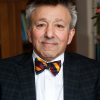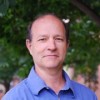Top Psychology Professors in Washington, DC 2026 – Expert Faculty Guide
Washington, DC, hosts exceptional psychology faculty across specializations, including behavioral pharmacology (Dr. Laura Juliano, American University), cultural psychology (Dr. Fathali Moghaddam, Georgetown), developmental cognitive neuroscience (Dr. Chandan Vaidya, Georgetown), and clinical psychology (Dr. Patrick Brice, Gallaudet). These professors combine groundbreaking research with dedicated teaching across the region's top universities.
 The nation's capital serves as home to some of the most prestigious psychology programs in the country, staffed by faculty who are reshaping how we understand human behavior, cognition, and mental health. These professors don't just lecture—they conduct pioneering research, mentor the next generation of psychologists, and contribute significantly to their specialized fields.
The nation's capital serves as home to some of the most prestigious psychology programs in the country, staffed by faculty who are reshaping how we understand human behavior, cognition, and mental health. These professors don't just lecture—they conduct pioneering research, mentor the next generation of psychologists, and contribute significantly to their specialized fields.
Whether you're considering a psychology program in DC or simply want to understand who's driving innovation in the field, this guide highlights outstanding faculty members whose expertise spans behavioral science, cognitive neuroscience, cultural psychology, clinical practice, and counseling.
Table of Contents
- How We Selected These Professors
- DC Psychology Professors at a Glance
- Behavioral Pharmacology & Health Psychology
- Cultural & Applied Social Psychology
- Cognitive & Developmental Neuroscience
- Clinical & Counseling Psychology
- Specialized Programs & Opportunities
- How to Connect with These Professors
- Frequently Asked Questions
How We Selected These Professors
Our selection process prioritized faculty members who demonstrate excellence across multiple dimensions. We evaluated professors based on their research contributions, publication records, teaching effectiveness as reflected in student reviews, leadership roles within their departments, and active engagement with both graduate and undergraduate students.
These professors represent diverse specializations within psychology, from behavioral pharmacology to cultural psychology to cognitive neuroscience. Each brings unique expertise while maintaining a strong commitment to student mentorship and educational excellence.
DC Psychology Professors at a Glance
| Professor | University | Specialty Area | Key Research Focus |
|---|---|---|---|
| Dr. Laura Juliano | American University | Behavioral Pharmacology | Caffeine & tobacco use mechanisms |
| Dr. Paul Poppen | George Washington University | Applied Social Psychology | HIV/AIDS, gender & culture |
| Dr. Deborah Clawson | Catholic University | Cognitive Psychology | Performance on cognitive tasks |
| Dr. Fathali Moghaddam | Georgetown University | Cultural Psychology | Conflict resolution, peace psychology |
| Dr. Alfred Wade Boykin | Howard University | Educational Psychology | Achievement gaps, at-risk students |
| Dr. Tania Thomas-Presswood | Gallaudet University | School Psychology | Deaf/hard of hearing assessment |
| Dr. Mark Bolden | Trinity Washington University | Clinical Mental Health Counseling | Race, culture, and class in counseling |
| Dr. Chandan Vaidya | Georgetown University | Developmental Cognitive Neuroscience | Brain imaging, developmental disorders |
| Dr. Anthony Ahrens | American University | Social Psychology | Emotion, depression, stress |
| Dr. Patrick John Brice | Gallaudet University | Clinical Psychology | Deaf children development |
Behavioral Pharmacology & Health Psychology
American University
Dr. Laura Juliano
Position: Associate Professor of Psychology
Education: PhD in Clinical Psychology, SUNY Binghamton
Postdoctoral Training: Johns Hopkins University School of Medicine
Additional Roles: Director, Behavioral Pharmacology and Health Promotion Laboratory
Research Focus: Dr. Juliano's research examines the mechanisms influencing drug-taking behavior, with particular emphasis on tobacco and caffeine use. As Director of the Behavioral Pharmacology and Health Promotion Laboratory at American University, she investigates how these substances affect behavior, cognition, and health outcomes.
Notable Contributions: Her work on caffeine use disorder has gained national attention, contributing to conversations about substance dependence beyond traditional drugs of abuse. Dr. Juliano has helped author multiple studies examining the behavioral and health impacts of commonly consumed substances.
Teaching Approach: Students consistently praise Dr. Juliano for her deep understanding of behavioral psychology and her engaging lecture style. She's known for making complex pharmacological concepts accessible and relevant to real-world applications, helping students understand how substances affect human behavior in everyday contexts.
Student Opportunities: The Behavioral Pharmacology and Health Promotion Laboratory offers research assistant positions for qualified undergraduates and graduate students interested in substance use research. Students gain hands-on experience with behavioral assessment, data collection, and scientific writing.
In Her Own Words: "What I love about being a professor at American University is that I get to combine my passions for research and teaching every day, as both activities are highly valued and supported. I am grateful for the opportunities I have to teach a wide variety of Psychology courses to undergraduate and graduate students who are engaged, eager to learn, hardworking, and diverse. Few things bring me as much pleasure as sharing the fascinating principles of psychology and their real-world applications with others."
Faculty Profile: American University Psychology Department
Cultural & Applied Social Psychology
George Washington University
Dr. Paul Poppen
Position: Professor of Applied Social Psychology, Department Chair
Education: PhD, Cornell University (1970s)
Additional Roles: Director, Applied Social Psychology Program; Executive Committee member, GW HIV/AIDS Institute; Director, Behavioral Science, Public Health, and Biostatistics Core, DC Developmental Center for AIDS Research
Research Focus: Dr. Poppen's research centers on the intersection of gender, culture, and HIV/AIDS. His work spans behavioral science, public health, and biostatistics, contributing significantly to understanding how cultural factors influence health behaviors and outcomes. His interdisciplinary approach connects psychological theory with real-world public health challenges.
Career Impact: With decades of experience at GW, Dr. Poppen has established himself as an authoritative expert on HIV/AIDS research, particularly in how social and cultural factors affect disease transmission and treatment adherence. He has been part of numerous research projects and publications addressing AIDS research from psychological and public health perspectives.
Teaching Excellence: Despite holding multiple administrative positions, Dr. Poppen maintains an active teaching schedule. Students appreciate his dry wit and ability to make early morning classes engaging—no small feat in academia. His courses blend theoretical foundations with practical applications, preparing students for careers where psychology meets public health.
Research Opportunities: Students interested in applied social psychology, public health, or HIV/AIDS research can explore opportunities through Dr. Poppen's various institutional affiliations, including the GW HIV/AIDS Institute and the DC Developmental Center for AIDS Research.
In His Own Words: "The field of psychology is interested in the world, and the world is increasingly interested in psychology. The new generation of psychologists will collaborate with researchers on every continent."
Faculty Profile: George Washington University Psychology Department
Catholic University
Dr. Deborah Clawson
Position: Associate Professor of Psychology
Education: Double degree in Computer Science and Psychology, Cornell University; Master's and PhD in Cognitive Psychology, University of Colorado
Additional Roles: Director, Applied Experimental PhD Program; Director, Human Factors Master's Program
Research Focus: Dr. Clawson's research investigates methods for improving performance on cognitive tasks. Her work bridges basic cognitive science with applied human factors, addressing how people process information and interact with complex systems. In simpler terms, she studies how we can help people think better and work more effectively with technology and complex environments.
Extensive Expertise: With a background spanning computer science and psychology, Dr. Clawson brings unique interdisciplinary insights to her research. Her publication record and national speaking engagements demonstrate sustained contributions to cognitive psychology. She has been invited to present her research at conferences across the country.
Teaching Excellence: Students frequently describe Dr. Clawson as one of the best teachers they've encountered. She's known for making complex cognitive concepts understandable, maintaining student engagement regardless of subject difficulty, and being consistently available for help both inside and outside the classroom. Her ability to explain difficult material clearly sets her apart.
Program Leadership: As director of two graduate programs, Dr. Clawson shapes the next generation of cognitive psychologists and human factors specialists, preparing them for careers in research, industry, and academia. Her programs blend rigorous scientific training with practical applications.
Career at Catholic University: Dr. Clawson has been teaching at Catholic University since earning her PhD, dedicating her career to both advancing cognitive psychology research and developing outstanding graduate programs in her field.
Faculty Profile: Catholic University Psychology Department
Georgetown University
Dr. Fathali Moghaddam
Position: Professor of Psychology
Education: Bachelor's degree, University of Liverpool; Master's and PhD, University of Surrey
Additional Roles: Director, Conflict Resolution Program; Editor, Peace and Conflict: The Journal of Peace Psychology
International Background: Born in Iran and raised in England, Dr. Moghaddam brings a truly global perspective to his work. His diverse background—including academic positions in Iran, Canada (McGill University), and the United States—informs his research on cultural psychology and conflict resolution. He joined Georgetown University in the 1990s and has become a central figure in the psychology department.
Research Focus: Dr. Moghaddam's work examines how cultural factors shape psychological processes, with particular emphasis on conflict resolution and peace psychology. His research has implications for international relations, social policy, and cross-cultural understanding. He explores how different cultural contexts influence everything from individual cognition to group dynamics and societal structures.
Prolific Author: Dr. Moghaddam has authored numerous books on cultural psychology, far exceeding typical academic output. His writing makes complex cultural-psychological concepts accessible to both academic and general audiences. His publications span theoretical frameworks, empirical research, and practical applications of cultural psychology.
Student Mentorship: Students describe Dr. Moghaddam as brilliant and deeply invested in individual student success. His teaching style emphasizes critical thinking about cultural assumptions and their psychological implications. He encourages students to question mainstream psychological theories and consider how cultural context shapes human behavior.
In His Own Words: "Studying psychology is a lifetime exploration of puzzles within both myself and the people around me. Students of psychology never get bored!"
Faculty Profile: Georgetown University Psychology Department
Howard University
Dr. Alfred Wade Boykin
Position: Professor of Psychology
Education: Bachelor's degree, Hampton University (late 1960s); Master's and PhD in Experimental Psychology, University of Michigan
Additional Roles: Executive Director, Capstone Institute
Research Focus: Dr. Boykin's groundbreaking research addresses academic achievement disparities between African-American and Caucasian students. His work at the Capstone Institute examines education trends for at-risk students, developing evidence-based interventions to close achievement gaps. He investigates how cultural factors, educational policies, and teaching methods interact to affect student outcomes.
Academic Contributions: Dr. Boykin co-edited a critically acclaimed book on black psychologists and co-authored research on the achievement gap in education. His work combines rigorous research methodology with deep cultural understanding, contributing both theoretical insights and practical educational interventions.
National Recognition: Dr. Boykin has served on prestigious national committees, including co-directing the Task Force on the Relevance of the Social Sciences to the Black Experience at Yale University and serving on the President's National Mathematics Advisory Panel. His expertise is recognized at the highest levels of educational policy and psychological research.
Teaching Philosophy: Despite his impressive credentials, students find Dr. Boykin remarkably down-to-earth and approachable. His course on psychology and the black experience is described as eye-opening, challenging students to examine cultural factors in psychological research and practice. He creates an environment where students can engage critically with complex issues of race, culture, and education.
Career at Howard: Dr. Boykin joined the faculty at Howard University in the early 1980s and has become an institution at the prestigious historically black college. His decades of service have shaped countless students and contributed significantly to the university's psychology program.
Faculty Profile: Howard University Psychology Department
Cognitive & Developmental Neuroscience
Georgetown University
Dr. Chandan Vaidya
Position: Professor of Developmental Cognitive Neuroscience
Education: Master's and PhD in Developmental Psychology, Syracuse University
Postdoctoral Training: Cognitive Neuroscience, Stanford University
Additional Roles: Co-Director, Graduate Program in Developmental Science; Investigator, Children's Research Institute at Children's National Medical Center
Research Focus: Dr. Vaidya's research employs behavioral, neuropsychological, and brain imaging methods to understand cognitive development. She studies both typically developing individuals and those with developmental disorders, contributing to basic science and clinical applications. Her work helps us understand how children's brains develop and what happens when development goes differently than expected.
Methodological Expertise: Her work utilizes cutting-edge structural and functional brain imaging alongside traditional behavioral measures, providing comprehensive insights into how the developing brain supports cognition. She combines multiple research approaches to create a complete picture of cognitive development.
Teaching Approach: Students praise Dr. Vaidya's deep knowledge of cognitive neuroscience and her caring, approachable nature. She excels at making a challenging field accessible, helping students make connections across complex concepts, and encouraging sophisticated critical thinking. Despite teaching difficult material, she maintains an environment where students feel comfortable asking questions.
Clinical Relevance: Through her work at Children's National Medical Center, Dr. Vaidya bridges basic research and clinical application, offering students exposure to how developmental cognitive neuroscience informs pediatric healthcare. This connection ensures her research has a real-world impact on children's health and development.
In Her Own Words: "The joy of teaching cognitive neuroscience comes from sharing the enthusiasm for material that is at the essence of what makes us who we are—what are the mechanisms that enable us to see, move, think, and feel? There is no greater reward than to see students' understanding grow as we move through the semester, to see them make connections across concepts and ask more sophisticated questions of it."
Faculty Profile: Georgetown University Psychology Department
Clinical & Counseling Psychology
Gallaudet University
Dr. Tania N. Thomas-Presswood
Position: Associate Professor of School Psychology
Education: Bachelor's, Master's, and PhD in Clinical and School Psychology, Hofstra University
Clinical Practice: School Psychologist, Arlington Public Schools, Virginia
Research Focus: Dr. Thomas-Presswood's research addresses cognitive and educational assessment of children, with specialized expertise in deaf and hard-of-hearing populations, cultural and linguistic diversity, and working with disadvantaged children and families. Her work ensures that psychological assessments are fair and effective for students from diverse backgrounds.
Dual Expertise: Dr. Thomas-Presswood brings both academic credentials and extensive practical experience, having worked as a school psychologist in New York, Texas, and Virginia. This combination ensures her teaching reflects real-world challenges and solutions that school psychologists face daily in educational settings.
Publications: She has authored numerous books and articles on psychological assessment, particularly focusing on culturally and linguistically diverse populations and students with hearing disabilities. Her publications help practitioners conduct more effective and culturally sensitive assessments.
Teaching at Gallaudet: Working with deaf and hard-of-hearing students requires specialized pedagogical approaches. Students appreciate Dr. Thomas-Presswood's caring attitude, willingness to listen, in-depth field knowledge, and ability to share practical experiences from her clinical work. She understands the unique challenges of teaching in a deaf-accessible environment.
Career Impact: Dr. Thomas-Presswood's work extends beyond campus as she continues practicing as a school psychologist, ensuring her teaching remains grounded in current educational practices and challenges.
Faculty Profile: Gallaudet University Psychology Department
Trinity Washington University
Dr. Mark Bolden
Position: Assistant Professor of Counseling
Education: Bachelor's in Psychology, Seton Hall University; Master's in Counseling Psychology, Seton Hall University
Program Growth: Trinity Washington University's master's degree program in clinical mental health counseling continues growing in popularity and prestige. Dr. Bolden plays a key role in this expansion, bringing both academic rigor and practical counseling expertise to a program that's becoming increasingly recognized in the DC area.
Research and Awards: Dr. Bolden has been published multiple times and received numerous awards for his contributions to counseling and psychology. His work addresses critical issues in mental health counseling practice and cultural competence.
Teaching Philosophy: Dr. Bolden's approach centers on encouraging critical thinking and open, honest debate on issues of race, culture, and class. He facilitates student engagement while allowing them to think independently and reach their own conclusions. His classroom is a space for exploring difficult topics with respect and intellectual honesty.
Student Perspective: Students value Dr. Bolden's down-to-earth attitude, genuine desire to help students understand complex material, and selfless approach to supporting struggling learners. His accessibility and teaching effectiveness make him a student favorite in a program known for rigorous training.
Professional Experience: Beyond his academic credentials from Seton Hall University, Dr. Bolden brings real-world counseling experience to the classroom, ensuring students learn both theory and practical application of clinical mental health counseling.
Faculty Profile: Trinity Washington University Counseling Program
American University
Dr. Anthony Ahrens
Position: Associate Professor of Psychology
Education: Bachelor's degree, Northwestern University; PhD in Psychology, Stanford University
Additional Roles: Director, Master's Degree Program in Psychology [Former Department Chair]
Research Focus: Dr. Ahrens' research examines emotion, depression, stress, and other social psychology topics. His work contributes to understanding how social factors influence emotional wellbeing and mental health. He investigates how our relationships, social environments, and emotional experiences interconnect.
Academic Career: After completing a postdoctoral fellowship at the University of Wisconsin, Dr. Ahrens joined American University's faculty and has remained there throughout his career. His sustained commitment to the institution demonstrates dedication to both research and teaching excellence.
Teaching Style: Students appreciate Dr. Ahrens' ability to synthesize dense reading materials during lectures, making complex psychological theories accessible. While his courses require substantial reading, students consistently report learning significantly about psychology and leaving with deeper understanding. He doesn't make the material easier, but he makes it clearer.
Academic Rigor: Dr. Ahrens' classes aren't easy, but students recognize the value in the challenge. His courses prepare students for graduate study and professional work in psychology through rigorous engagement with primary literature and theoretical concepts. Students who take his classes develop strong critical thinking skills.
In His Own Words: "I'm surprised and flattered to be chosen, given the excellence of my colleagues and my tendency to ignore technique. I attribute any success I have had to remembering what I love about the material I am teaching, treating my students with the dignity they deserve as students (rather than as mere consumers), and talking incessantly about the St. Louis Cardinals. And I thank all the family, friends, teachers, and students who have inspired me over my lifetime."
Faculty Profile: American University Psychology Department
Gallaudet University
Dr. Patrick John Brice
Position: Professor of Psychology
Education: Bachelor's, Master's, and PhD in Clinical/Developmental Psychology, University of Illinois at Chicago
Additional Roles: Program Director, Clinical Psychology PhD Program
Career at Gallaudet: Dr. Brice has spent his entire academic career at Gallaudet University, joining immediately after completing his PhD and postdoctoral fellowship at the institution. His sustained commitment demonstrates deep dedication to deaf education and psychology. He's been part of the university community since the 1980s.
Research Focus: Dr. Brice's research examines various aspects of development in deaf children, including social cognition, social-emotional development, and parent-child attachment. His work contributes essential insights into how deaf children develop psychologically and socially, filling critical gaps in developmental psychology research.
Multiple Professional Roles: Beyond teaching and research, Dr. Brice serves as a reviewer for multiple journals, a grant reviewer for funding agencies, and a consulting psychologist throughout the DC area. He also maintains an independent private practice, keeping his clinical skills current.
Teaching Excellence: Students praise Dr. Brice's sense of humor, ability to keep classes interesting, engaging lecture style, and high standards for student performance. His teaching balances accessibility with academic rigor. He creates a classroom environment that's both challenging and supportive.
Program Leadership: As program director for the Clinical Psychology PhD Program, Dr. Brice shapes one of the nation's only clinical psychology doctoral programs specifically focused on serving deaf and hard-of-hearing populations. The program trains clinicians who can provide culturally competent mental health services.
In His Own Words: "I'm quite honored to be included in this group, especially when I see all the talent and creativity in my colleagues at Gallaudet and around the community. I really do have a fantastic job. I get to spend my day discussing and exploring fascinating ideas about the human condition with bright young people who go out and make a difference. What could be better than that?"
Faculty Profile: Gallaudet University Psychology Department
Specialized Programs & Opportunities
Washington, DC's psychology programs offer unique opportunities beyond traditional coursework. Understanding the specialized programs and research opportunities available can help you make informed decisions about your educational path.
Research Opportunities
Most professors featured here maintain active research labs where undergraduate and graduate students can gain hands-on experience. Research assistant positions typically require:
- Strong academic performance (usually 3.0 GPA minimum)
- Genuine interest in the professor's research area
- Time commitment of 10-15 hours per week
- Completion of relevant coursework (varies by lab)
Graduate Programs
Several of these professors direct or contribute to specialized graduate programs:
- Applied Experimental Psychology (Catholic University): Directed by Dr. Clawson, focusing on cognitive psychology and human factors
- Applied Social Psychology (GWU): Led by Dr. Poppen, emphasizing real-world applications of social psychology
- Clinical Psychology PhD (Gallaudet): Directed by Dr. Brice, specializing in deaf and hard-of-hearing populations
- Clinical Mental Health Counseling (Trinity Washington): A Growing program with Dr. Bolden's involvement
- Developmental Science (Georgetown): Co-directed by Dr. Vaidya, integrating developmental and cognitive neuroscience
Special Focus Areas
DC psychology programs offer distinctive focus areas:
- Deaf and Hard of Hearing Psychology (Gallaudet): The world's only university designed specifically for deaf and hard of hearing students, offering unparalleled expertise in this specialized area
- Cultural Psychology (Georgetown, Howard): Emphasis on how cultural factors shape psychological processes
- Public Health Psychology (GWU): Integration of psychological science with public health initiatives
- Conflict Resolution (Georgetown): Application of psychological principles to peace and conflict studies
How to Connect with These Professors
Connecting with faculty members requires a professional approach and genuine interest. Here's how to make meaningful connections:
For Prospective Students
Research First: Before reaching out, thoroughly review the professor's recent publications, lab website, and current research projects. Demonstrate you've done your homework.
Craft Thoughtful Emails: Include:
- Clear subject line (e.g., "Prospective Graduate Student Interested in Cultural Psychology Research")
- Brief introduction of yourself and academic background
- Specific reasons you're interested in their research
- Relevant experience or coursework
- Specific questions (not general information available on their website)
Timing Matters: Academic schedules vary, but generally:
- Avoid the first weeks of the semester and the final exam periods
- For graduate program inquiries, reach out 12-18 months before the intended start date
- Allow 1-2 weeks for response before polite follow-up
For Current Students
Office Hours: Take advantage of regular office hours to discuss course material, research interests, or career guidance.
Course Performance: Demonstrate commitment through excellent work in their courses before asking about research opportunities.
Long-term Engagement: Building meaningful mentorship relationships takes time. Show sustained interest rather than one-time inquiries.
Looking to explore clinical psychology careers, counseling career paths, or online psychology degree programs? Our comprehensive guides provide detailed information about educational requirements, licensure processes, and career opportunities.
Frequently Asked Questions
Can undergraduate students work with these professors on research?
Most of these professors offer research opportunities for undergraduates, though specific requirements vary by lab and university. Generally, you'll need strong academic performance (typically 3.0+ GPA), relevant coursework, and a genuine interest in the research area. Start by taking courses with the professor and expressing interest during office hours. Research assistant positions often require a 10-15-hour per week commitment.
How do I choose the right psychology professor or program in DC?
Consider your specific interests within psychology first. If you're interested in behavioral pharmacology, Dr. Juliano at American University specializes in substance use. For cultural psychology, explore Dr. Moghaddam's program at Georgetown. Those interested in deaf and hard-of-hearing populations should investigate Gallaudet's unique offerings. Visit department websites, attend information sessions, and, if possible, sit in on classes to get a feel for teaching styles and program culture.
What's the difference between clinical psychology and counseling psychology programs?
Clinical psychology programs (like Dr. Brice's at Gallaudet) typically emphasize research training alongside clinical practice, preparing graduates for careers in research, teaching, and clinical work. They often focus on severe mental illness and psychological assessment. Counseling psychology programs (like Trinity Washington's, where Dr. Bolden teaches) generally emphasize practical counseling skills and work with less severe mental health concerns. Both lead to licensure, but the training emphasis differs.
Do these professors accept students from outside their universities for research collaborations?
Policies vary by professor and university. Some professors collaborate with students from other DC-area institutions, particularly at the graduate level. However, most research assistant positions prioritize students enrolled at their own university. If you're interested in cross-institutional research, reach out to professors directly with specific project ideas and explain how the collaboration would benefit both parties.
What are the typical admission requirements for graduate programs with these professors?
Graduate program requirements vary significantly by university and program level. Generally expected: GRE scores (though some programs are moving away from this requirement), 3.0+ undergraduate GPA, research experience or relevant work experience, strong letters of recommendation from psychology faculty, and a clear statement of purpose explaining your research interests. Some programs require specific prerequisite courses in psychology, statistics, and research methods. Check individual program websites for current requirements.
How competitive are psychology programs in Washington, DC?
DC psychology programs range from highly competitive (Georgetown, GWU) to moderately selective. PhD programs typically accept 5-10% of applicants, while master's programs accept 20-40%. Factors improving your chances include: strong GPA, relevant research or clinical experience, clear research interests aligned with faculty expertise, and strong recommendation letters. Applying to multiple programs at different selectivity levels is advisable.
Can I take classes with these professors as a non-degree student?
Most universities allow non-degree students to enroll in courses through continuing education programs, though policies vary. Contact each university's continuing education office for specific requirements. Note that access to professors outside of class may be limited for non-degree students, and research opportunities are typically reserved for degree-seeking students.
Key Takeaways
- Washington, DC, hosts exceptional psychology faculty across diverse specializations, from behavioral pharmacology to cultural psychology to cognitive neuroscience
- These professors combine groundbreaking research with dedicated teaching, offering students opportunities to learn from active researchers in their fields
- Critical verification needed: Information compiled in 2021 requires verification of current professor employment status, teaching availability, and program details before making educational decisions
- Research opportunities exist for motivated students, typically requiring strong academic performance and a genuine interest in faculty research areas
- DC's unique position as the nation's capital provides specialized opportunities in areas like public health psychology, conflict resolution, and cultural psychology
- Connecting with professors requires professional communication, thorough research of their work, and an understanding of academic timelines and protocols
Explore Psychology Programs in the DC Area
Ready to start your psychology education journey? Discover accredited programs across all degree levels in Washington, DC, and the surrounding areas.
Are these professors still actively teaching in 2025?
[CRITICAL VERIFICATION NEEDED] The information in this article was originally compiled in 2021. Before making any educational decisions based on this content, verify each professor's current employment status, teaching availability, and course offerings directly with their respective university departments. Faculty positions, retirement plans, and teaching assignments change over time.













